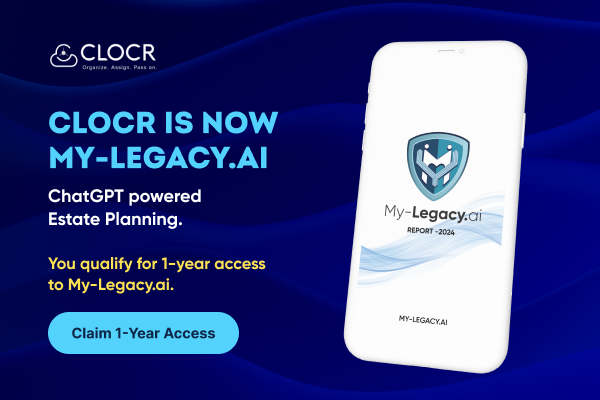The world is moving towards a digital future. That is inevitable. Our memories and even some of our personal documents can now be stored in digital form and preserved on a computer or some other storage medium (external hard drives, cloud storage). Most of us take these Digital Assets for granted, but have you ever wondered what happens to them once their owner is deceased or becomes incapacitated? Like making Wills that help us pass on our material possessions, you can make use of Digital Estate Planning to decide what happens to your Digital Assets when you pass away.
All of us have things that are precious to us. But ‘precious’ is a very subjective term. What might be invaluable to one person could be disposable to another. A seemingly insignificant rock that your childhood friend gave you could be the most important thing to you in the world. But that does not mean you can sell it for a high price. These things or ‘assets’ cannot be quantified by conventional monetary systems due to their subjective nature.
Like the rock in the above-mentioned example, there are also Digital Assets that cannot be quantified based on their monetary value. These are usually personal files like images, videos, or audio files. While you can’t make any financial gains from these Digital Assets, they may still be invaluable to you and you would like to preserve them even after you move on.
Those pictures you took while on a trip, or those videos from your parents’ wedding anniversary, are all invaluable not just to you, but also to your family. While they may not possess any monetary value, their sentimental value cannot be quantified.
But what can be classified as Digital Assets that do not possess any monetary value?
Images and Videos
We know of our ancestors and their stories from our parents and grandparents, and we know what they look like because of the pictures we see in physical photo albums. But as the world moves towards a digital future, photo albums are becoming a thing of the past. Cloud storage services like Google Photos and even your own Instagram feed works as a way of preserving your memories digitally.
Online Accounts
However, these personal files are not the only Digital Assets that are valuable without having any monetary value. The online accounts that you use for shopping, listening to music, watching videos, browsing social media, or even gaming also come under the non-monetary Digital Asset bracket.
Personal Domains
Personal blogs can be a space in which you share your experiences and anecdotes.
But even then, what happens to these digitally stored assets once you pass away? These blogs and domains that are created/owned by you are also non-monetary Digital Assets
Unlike the albums of old that were owned by your ancestors and passed down, the services we use to preserve our assets are owned by companies that may or may not have a Legacy Policy in place through which your assets can be transferred. Once you pass on, what happens to all of your Digital Assets? Will your family be able to access them?
Similar to making a Will, you can decide what happens to your Digital Assets after you’re gone. By creating an Estate Plan for your Digital Assets, you can make arrangements as to who will handle your account and even leave instructions for them on how they should be handled. Even though some of the Digital Assets you own possess no monetary value, the sentimental value they have to both you and your loved ones is enough of a reason to preserve them.
Now that you know how Digital Assets are not just of monetary value, but also of sentimental value to you and your loved ones, preserve them by safeguarding your memories through a Digital Estate Plan.
Sign up with Clocr today to get all the help you need in securing your Digital Assets.




